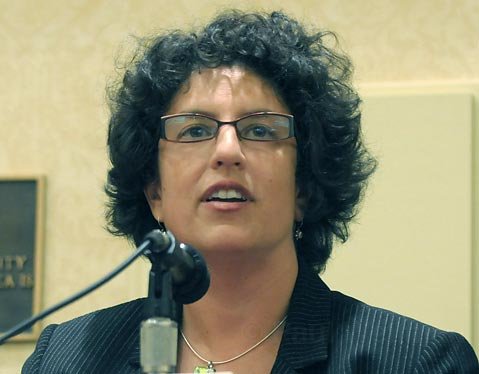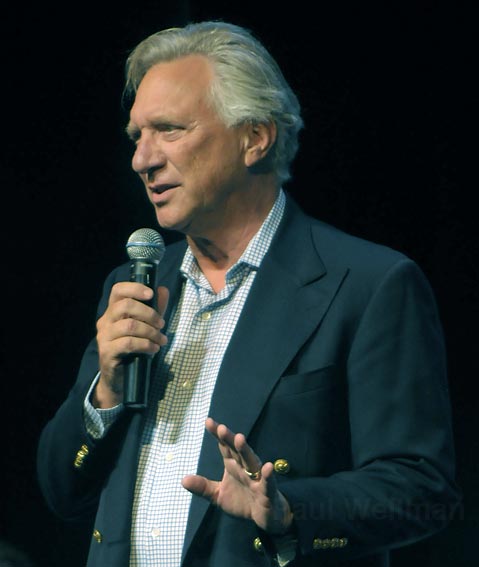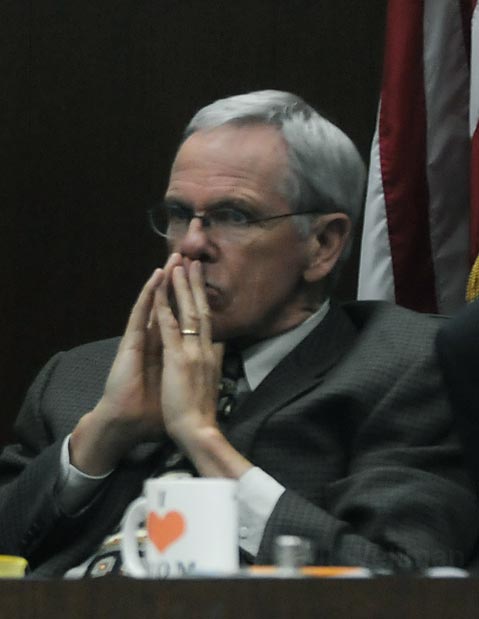
If whiskey is for drinking, as Mark Twain once famously said, then medical marijuana seems to have trumped water as the substance of choice “for fighting over.” After meeting on the matter no less than 21 times in the past two years, the Santa Barbara City Council has still not found resolution on how best to regulate medical marijuana dispensaries. Or whether to allow them at all. In a pre-emptive move to head off the growing legion of pot-prohibitionists, Mayor Helene Schneider and councilmember Bendy White — who both have supported a limited number of dispensaries — proposed placing two competing initiatives on the ballot this November to allow city voters to decide. One of the measures would ban any and all storefront dispensaries of medical marijuana within city limits. The other would ask voters to ratify an ordinance allowing up to five dispensaries throughout the city, along with a host of new rules, regulations, and operating restrictions.

Schneider and White issued a public announcement of their intentions this past weekend, shortly after a new organization, Santa Barbara Citizens Against Marijuana Dispensaries, mailed a two-page call-to-arms to every household in the city, asking residents to show up at this Tuesday’s council meeting to demand a total ban on dispensaries. The flyer posted competing images of Santa Barbara’s destiny: “American Riviera or Marijuana Mecca.” The text argued, “Selling pot for medical or recreational use is not legal. Community leaders declare that marijuana dispensaries are a clear and present danger to our community and her citizens. Why is our council not listening?”
The mailer targeting Mayor Schneider, suggesting that she’s the unwitting dupe of pro-pot forces. “Councilmember Das Williams and Grant House are determined to have pot sold all over the city,” the flyer read. “They’re tools of the pro-pot lobby and it is very shrill. Our mayor wants to be seen as compassionate, but she’s just being used by these forces.”
Schneider was less than thrilled by the attention. “Trying to bully me with a citywide anonymous mailer is not the way to get through to me,” she declared. Schneider noted that many of the claims contained in the flyer were factually inaccurate. She said the compromise ordinance approved by a 5-2 vote two weeks ago was one of the strictest medical dispensary regulations anywhere in the state. She expressed frustration that councilmember Frank Hotchkiss—who voted for the compromise measure—announced that he has since changed his mind and is opposing final ratification. “The community is fed up. I’m fed up,” Schneider said.

Some activists pushing for a ban were skeptical about Schneider’s initiative proposal. “That’s a last resort,” said Jim Westby, a neighborhood activist, City Hall critic, and political strategist involved in getting conservative councilmembers Frank Hotchkiss and Michael Self elected. “We deal with tough issues all the time. To me it should be a slam dunk when you see all the people lined up in favor of a ban. Why doesn’t Mayor Helene put public safety ahead of dispensaries that make up to $100,000 a month?”
Westby, however, did not say he was opposed to the initiative; he would consider it. As a practical matter, though, he noted that the November ballot already included a statewide initiative to legalize marijuana sale and consumption for recreational purposes. The state pot ballot would give cities and counties the responsibility of enacting whatever ordinances they saw fit; it would also give them the ability to tax and collect revenues from such operations. To have so many marijuana-related initiatives on the same ballot could be confusing, Westby said.
Schneider said it would require only four votes to put the dueling pot initiatives on this November’s ballot. Westby argued that a unanimous vote would be required instead. That’s because, he said, City Hall is not holding its regularly scheduled elections this Fall and it requires a unanimous vote for the council to place something on the ballot in such instances. But Schneiders’ advisors contend that a four-vote majority will suffice because no new taxes are being sought. A unanimous vote would have been required if voters were being asked to approve a tax increase.

In addition, Jeramy Lindaman — campaign manager to both Schneider and White — said he’s heard credible reports of possible pot-related initiatives scheduled for the following November. (One would be to ban dispensaries altogether; the other would be to launch a recall campaign against councilmembers who supported dispensaries. Councilmember Grant House — an ardent supporter of medical marijuana — has been named, as has councilmember Das Williams. Williams, who is now running in the Democratic Party primary for the 35th State Assembly seat, will be termed out of city office at the end of next year.)
Next November is when new councilmember Michael Self, a staunch conservative and opponent of dispensaries, will be up for re-election. Lindaman — who typically represents Democratic and progressive candidates — is anxious to prevent medical marijuana from becoming the defining wedge issue that ushers in a new conservative majority in next year’s council race. By placing it on the ballot this year — as opposed to next — he’s hoping to defuse what could still be political dynamite the following year. In addition, the initiative would resolve an issue that’s defied resolution despite the council’s considerable exertions thus far. Some councilmembers, like Bendy White, have expressed concern that the issue has become a drain on limited council resources at a time when more pressing matters — like the city’s budget — need to be addressed.
The other event precipitating Schneider’s and White’s proposal is the political about-face just executed by councilmember Frank Hotchkiss on his vote in favor of a compromise ordinance that would allow dispensaries. Without Hotchkiss’s vote, the compromise dispensary measure — hammered out by the council two weeks ago — will lack the five vote super-majority needed to pass. Hotchkiss reported that he would move to have his vote reconsidered, which as a member of the prevailing side, he’s entitled to do. But failing that, Hotchkiss announced that he will not be voting in favor of final ratification of the dispensary measure. This leaves the council — and the city’s medical marijuana ordinance — in a confusing state of limbo. Barring a council action on the matter, an ordinance approved two years ago will remain on the books, even though all seven councilmembers have said they agree it’s no good. Hotchkiss — who as a member of the council’s ordinance committee helped draft the latest compromise proposal — said he was now voting against it because he’s heard so many educators, youth advocates, and people in the recovery community have complained that it’s not restrictive enough.
In recent months, a loose confederation of anti-dispensary activists have grown more politically organized, enlisting the involvement of Sheriff Bill Brown, City College President Andrea Serban, Public school superintendent Brian Sarvis, and the Santa Barbara Police Officers Association. In addition, State Assemblymember Pedro Nava has been outspoken in his criticism of City Hall’s response to medical marijuana dispensaries, likening the situation to the “wild west.” They’ve complained that the City Council has turned a deaf ear to their concerns. Chief among these was that dispensaries be kept no less than 1,000 feet from schools, parks, and recovery facilities. But planners with City Hall stated that a 1,000-foot buffer requirement was the functional equivalent to a total ban because no dispensaries could be allowed.



